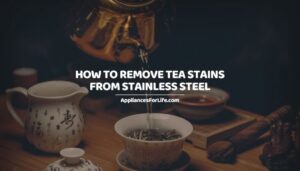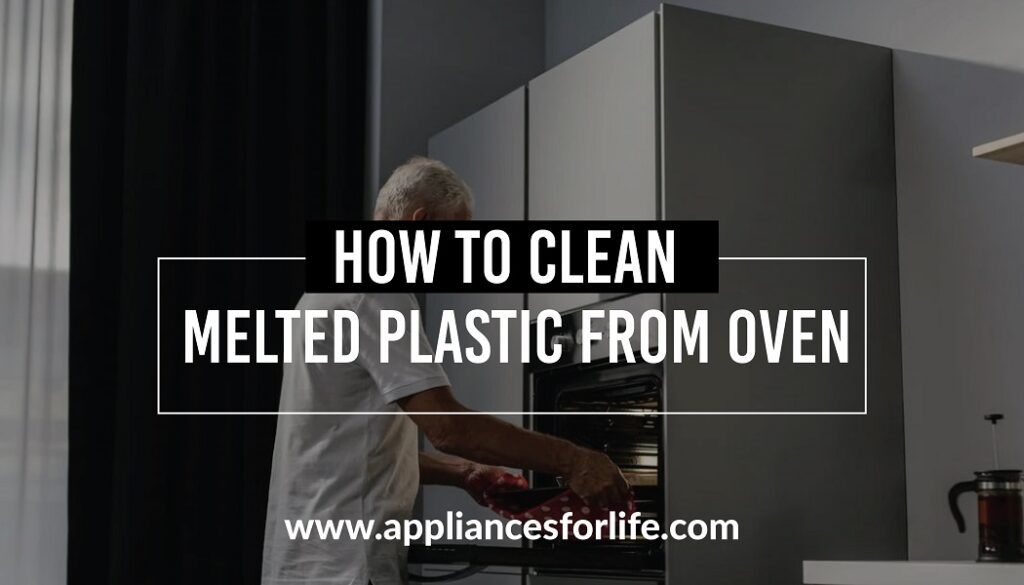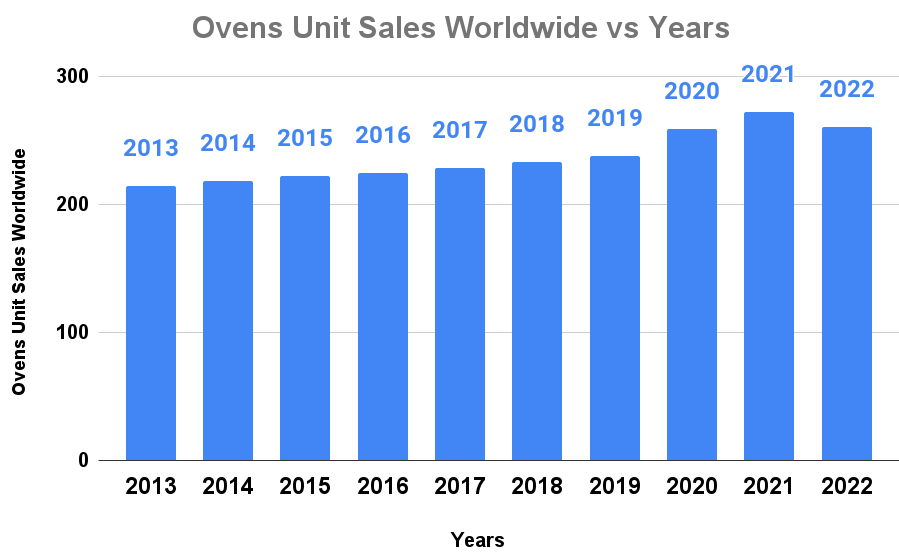- It is common knowledge that plastics and plastic bags never go well with a hot surface. A burn is inevitable when they come in contact but oftentimes this happens. The situation of melted plastics in cooking ovens is just as common as the knowledge of its possibility. If this situation cannot due to fatigue and other reasonable excuses, its mess can be cured. This article provides an insight into getting rid of melted plastic in ovens.
- In order to be able to properly apply the tips to cleaning plastics off cooking ovens, it is necessary to first know about some oven types that exist and the distinguishing features. This knowledge does not only help us make informed decisions when we approach the store for a new cooking oven, it also helps us determine the cleaning tips applicable to particular ovens when plastics are accidentally melted in them
Introduction
An oven is an enclosed compartment that exposes materials, usually food, to a hot environment. Most ovens are built like a hollow box with trays and a door to trap heat within the oven. An oven cooks foods using controlled heat. As you probably already know, it is the best available means to have your food ready and edible if you do not want it boiled in steaming water or fried in hot oil. Ovens can be used for baking or roasting food or heating or drying things. Because they are used to accomplish a wide variety of tasks requiring controlled heating, there are several types of them, and these types differ in their intended purposes and how they generate heat.
Table of Contents
ToggleFrom a narrow perspective, ovens are used for heating food to the desired temperature, but from a broader point of view, ovens are also used in the manufacturing of ceramics and pottery. Some ovens are also used in the manufacturing of metals, they are called metallurgical furnaces, and there are glass furnaces used which are ovens used for producing glass. The major focus of this work will be ovens used to produce food.
To further expatiate on the variety of ovens, it is important to know that there are many methods by which the above-mentioned types of ovens produce heat. Ovens like metallurgical furnaces use fuel combustion to produce heat, such as coal and natural gas. However, many ovens used for producing food use electricity to produce heat. Another rare kind of oven is a Microwave oven which heats materials by exposing them to microwave radiation.
There is no doubt that Ovens are widely used around the world. Above is a chart showing the Unit Sales of Ovens around the world from 2013 to 2022.
Different types of ovens explained
The oven is a cornerstone of a busy kitchen. The oven is used to prepare most snacks and fast foods, from roasts to cakes and cookies. An oven is a potent tool for crispy perfect delicates. Without an oven, your kitchen is just bare. Ovens generally are essential appliances in the home, but they can be completely of no use to you if the wrong one is bought.
There are several types of ovens serving various functions. Your choice to add an oven to your home will be largely influenced by your personal circumstances and preferences. Finding an oven that best suits your kitchen is a mission worth your while. There are numerous categories to choose from, and a wrong choice may bring regrets. Hence, to help you with the decision-making process, Canstar Blue has compiled a list of ovens below, whether you’re a kitchen novice or a culinary master.
Gas Ovens
The Gas Oven is a popular option for many households because it has been around for decades now, as far back as the 19th Century. It is also relatively cheaper to run compared to Electric Ovens. A good example of a gas oven is the Single Wall Oven, GASLAND Chef Pro GS606MS 24
Gas ovens heat their content through a gas-fuelled burner, implying that they need a constant gas supply to function. Depending on the oven model, the gas is ignited by a spark generator or a small pilot flame. Hence, you are allowing gas to flow from the mains of your appliance when you turn on the gas, and to add some spark of flame; you have to activate the ignition button, which will create a spark that lights the burner. Conversely, if your oven uses a constantly-lit pilot flame, this will ignite the gas for you.
To ensure that the food in the oven cooks at a consistent temperature without getting too hot or reducing its heat, a thermostat is built inside the oven to measure and regulate the temperature of the oven so that the oven burner is extinguished when it gets too hot and turned back on when it is getting too cold.
Electric Oven
Electric ovens are a more common option for many households. Electric ovens have the majority oven market share because they are cheaper to buy than gas ovens and because they have more brands and model types available. Users who want an oven tailored to serve their specific needs and like their ovens embroidered with many options usually go for an Electric oven. An good example of an electric oven is the Oster Convection Countertop and Toaster Oven | French Door and Digital Controls | Stainless Steel, Extra Large.
Electric ovens are considered a more recent technology that makes cooking easier. Apart from the ease it brings to cooking, an electric oven also makes its cleaning easier. Although they may be energy-consuming, they are still your best bet if you haven’t yet decided on the specific use of an oven.
Electric ovens are further divided into convection and conventional ovens. The contrast between these two subcategories comes from how the oven cooks your food and heats the air inside. A conventional oven heats from the bottom up but may still create inconsistent cooking as pockets of cooler air can form in some areas. Hence, unlike the convectional oven that will circulate warm air from the oven through a fan at a possible lower temperature than conventional ovens while still achieving the same results.
Steam Ovens
As the name suggests, Steam Ovens are ovens that use hot steam rather than hot hair for cooking food. Steam Ovens are a whole new and unconventional cooking style in the kitchen, and they have been discovered to be more effective, especially at reheating things more effectively than microwaves. A steam oven can be used in place of a standard Convection oven, or it can even be paired with one for a wide range of cooking power. Hence, with just about anything you can cook with a traditional oven, you can cook better in a steam oven. An example of a steam oven is the Miele DGC 6765 XXL ContourLine 24″ Clean Touch Steel Plumbed Combination Steam Oven
Steam Ovens have not always been preferred by many, but in recent times, it has started to replace other known popular choices in the kitchen with their more natural water-based heating system. Most steam ovens work by injecting water from a small tank into a boiler built into the oven. This boiler can heat the water to 212 degrees Fahrenheit and then realize the heat produced into the oven for cooking. Most prospective users worry about having to refill the oven’s water tank incessantly, but this has been covered as most upscale models are connected directly to a water line so that one does not have to worry about refilling the water tank too often.
One of the advantages of a steam oven is that they also retain more nutrients and reduce cooking times, although this may impact how crispy your food ends up, meaning a steam oven might not suit you if you prefer it crispy. This is why the major downside to a steam oven is that it is best used with a Convectional oven and not alone.
What to do if you melt plastic in your oven
Some plastics, especially those found in the kitchen, can not stand high temperatures, everyone including those who aren’t really familiar with the kitchen terrain knows this. But oftentimes, due to fatigue and busy schedules, we accidentally burn plastics on our ovens and we have to get them off. On a lighter note, plastics are just so ‘mesmerized’ when they see ovens and other ‘hot stuff’ that they just ‘melt’.
On a more serious note, accidents happen and when they do, they leave some mess, messes big enough to cause respiratory problems from the fumes melting plastics or damage to Home Appliances from melted chemicals. Therefore, when you remove melted plastic from any surface, be sure to get the area well ventilated and unplug all appliances as a precaution for accidents.
How to remove melted plastic from Oven
Melted plastic on an oven or other hot material leaves a gooey sticky mess. This mess may be so overwhelming that you think it can not be fixed because not only is the melted plastic super sticky, it also produces an offensive smell that causes lasting respiratory problems. However, when cleaning melted plastic from an oven, you have the liberty of using either of these two popular methods and they are; the cold and the warm methods. For the warm method, all you need to do is use the heat from your oven to melt the plastic fully, then scrape the melted plastic off gradually as it softens, with a wooden spoon. While using this method however, you have to be careful to not burn your hand or other extremities.
To use the cold method, you may have to get Ice bags, Dish detergent, Scrubbing pad and Razor scraper
Steps for Removing Plastic From Oven using the cold method
- First take the rack out of the oven and scrape the cooled plastic off it.
- Put ice bags in the oven over the plastic.
- Shut the Oven door till the ice has completely melted in the oven.
- Use the scraper to help you pry the brittle hardened plastic off the inside of your oven.
- Use detergent and scrubbing pad to clean out the inside of your oven.
- Give the oven a test run on high to make sure all the plastic is gone.
Self-Cleaning Ovens
If your Oven is self-cleansing, it is better to run this program instead of using the cold method explained above because the cold method could destroy the coating of a Self-Cleaning oven. However, it is advisable to open all shutters for proper ventilation before running the self-cleansing feature because in the process, the plastic may be heated, causing a very toxic smell. After all shutters are thrown wide open, turn your oven on the lowest setting and wait until the plastic softens then you can begin scraping the softened plastic with a wooden spoon and nothing sharper; otherwise, it could destroy the oven. When this exercise is done, run the self-cleansing cycle to burn out plastic residues.
How to Clean Melted Plastic off Stove
The most irritating part about cleaning melted plastic on stove coil burners or oven elements is the smell. To get the plastic off, first turn on the range vent hood and the stove so that the plastic on it can be softened. According to GE Appliances, you don’t want to let the stove get too hot because it might burn the utensil that you’re using to scrape the melted plastic.
When the plastic softens, scrape the top of the stove coil with a wooden spoon or a spatula. Try to get as much melted plastic as possible off the stove coil so that there is only very little left over to be burnt off by the stove’s high unit. Take note that during this process, ensure to keep those shutters open in order to avoid harmful smell caused by melting plastic.
How to get rid of melted plastic on Glass Cooktop
Ceramic glass Cooktops can remain hot for a while after cooking. While it is still hot, it is possible to accidentally keep plastic bags or plastic containers on the Cooktop, hence melting it.If that happens, immediately turn on the kitchen hood to vent away fumes while the cooktop cools because exposure to the fumes may cause some respiratory problems.Once the Cooktop is safe to touch, scrape the melted plastic off with a dull knife. When this is done, there will be some plastic residue on the glass Cooktop that will require some chemical-based cleaner. Some of the cleaners are;
WD-40: Spray the plastic with a WD-40 and let it remain for five minutes before you begin to scape the plastic away with a safety razor blade held at a 45-degree angle.
Acetone or nail polish remover: Soak the plastic residue with acetone-based nail polish remover and leave it there for at least 5 minutes before scrapping it off.
Baking soda: The most natural method of these is the use of baking soda. Add a pinch of baking soda or more depending on the quantity of the melted plastic. Add little water to the baking soda to make a paste, mix together thoroughly and lastly apply to the affected area of the cooker. This forms an abrasive that makes scrubbing off a lot easier.
All of these methods are effective, you may however choose the one that best suits you, all that matters is that that melted material on your cooker is taken off before the next cooking otherwise it’ll worsen and cause terrible smell
FAQs
Is Melted Plastic in Oven Dangerous?
You might have been wondering if foods cooked in an oven with melted plastic are good for your health, the answer is very likely in the affirmative. There are no guarantees here because it hasn’t been concluded yet whether foods prepared in such an oven are healthy. However, Scientists have revealed that any food cooked in toxic fumes from a contaminated oven may be harmful to our health, hence it is best to stay safe and to avoid such foods.
Will Self-Cleaning Oven Remove Melted Plastic?
Indeed, Self-Cleaning Ovens are really helpful when it comes to getting rid of melted plastics but they need significant assistance. Large pieces and puddles of plastics need to be removed first to avoid an even bigger mess in the process of getting rid of melted plastic. The residue of these bigger pieces is what a self-cleaning oven can deal with when it is run through a cleaning cycle.
Can burned plastic in Oven cause illness?
It is possible for fumes produced from burning plastic to cause some respiratory illness. Asthmatic patients are strongly advised against remaining in such an environment otherwise the fume may trigger an Asthma attack. Hece, when you are experiencing a plastic burn, be sure to keep the environment affected completely ventilated.
15 MINUTES
ESTIMATED TIME DESIGNING AND UPLOADING THIS ARTICLE
07 HOURS
ESTIMATED TIME RESEARCHING AND WRITING THIS ARTICLE
You Might Also Like

All About Under The Counter Microwaves
Microwaves were invented to make reheating and cooking a simple pleasure in life. Under the counter microwaves are designed to keep your kitchen as modern and simple looking as possible while still being practical. There are many reasons why you should think about putting your

Everyone needs a microwave for basic cooking, but those with little space may be limited to purchasing the best small microwave they can afford. The great thing about a small microwave is the amount of counter space it saves you while still cooking your food

How to Keep Food Warm Without Electricity?
In a world that’s largely dominated by technology, keeping food warm without electricity might seem impossible but not impossible. In this article, we’ll be taking you through the guide on how to keep food warm without electricity, citing different examples and proven methods. We’ll also

Toaster Oven Vs. Microwave Oven; Differences and Similaries
A toaster oven is believed to offer the kind of convenience and versatility you need to prepare your meal. When it comes to versatility, it is hard to find a home appliance that does as much as a toaster oven- it toasts conveniently to crisp,

Best Microwave Oven Under $100
What is a kitchen without a microwave? Most of the general daily tasks that you do in your kitchen can be done with a microwave and with ease. You might need to defrost meat, reheat food or just warm something up. Let’s be honest –

How to Remove Tea Stains from Stainless Steel?
Tea is one thing that can be found almost in every home because of how easy it is to prepare. However, tea can leave lasting stains on your stainless steel items (teapots, cups, or travel mugs) and that will forever change the beautiful look that

How to Remove Stickers from Appliances
Sometimes, appliances are better off with decorative stickers but not everybody understands that, especially people with young kids at home. In this article, we’ll be looking at how to easily remove these stickers from your stainless steel appliances. The new appliances coming through the ranks

What Appliances Use the Most Electricity in a Household?
Electrical appliances have become a must-have in every home and they’ve become popular in recent years, especially the modern ones with new tech-inspired features being packed with them. As a result of that, the energy consumption in every home has increased greatly, which has left

The Best Microwaves Under $100
As an Amazon Associate we earn from qualifying purchases. We may earn a small commission for our endorsement, recommendation, testimonial and/or link to any products or services from this website. Thank you, your qualifying purchases help support our work in bringing you real daily gift

What Are The Best Appliances To Buy For Your Home?
It’s not always easy finding out what the best appliances to buy in the market are, especially when you’re on a budget but in this article, we’ll be helping you solve that mystery by recommending some of the best budget-friendly kitchen appliances you can get


